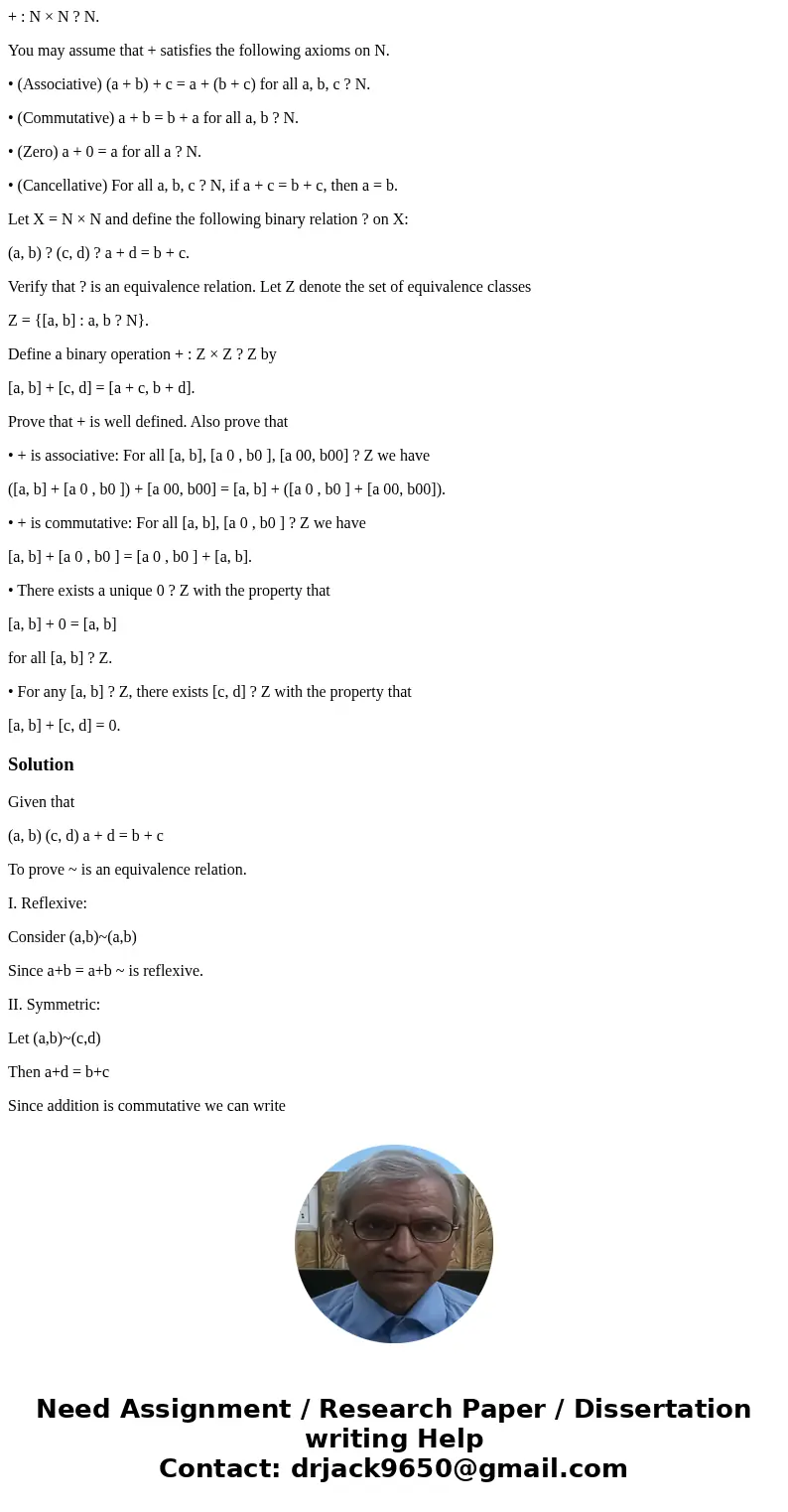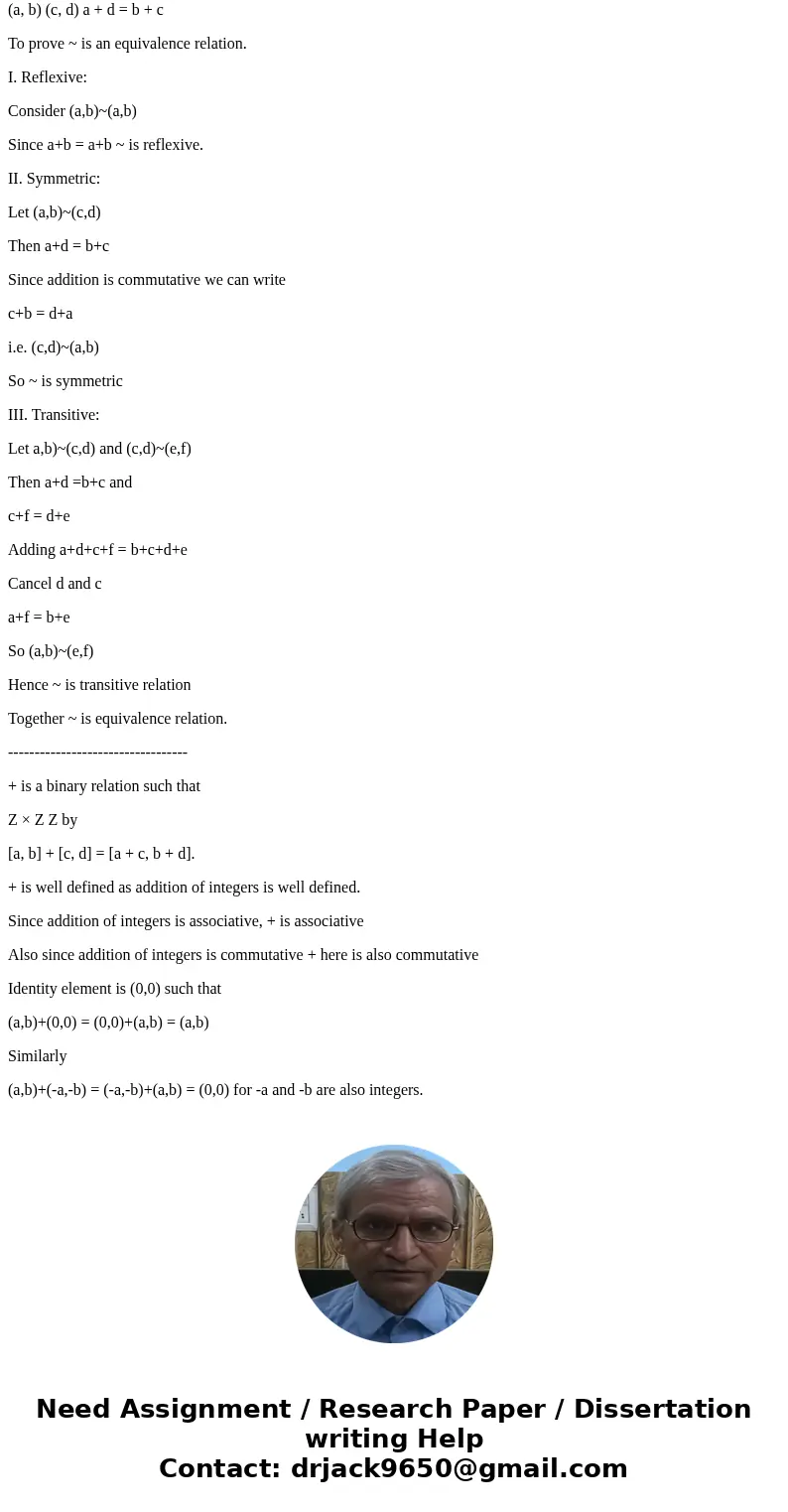N N N You may assume that satisfies the following axiom
+ : N × N ? N.
You may assume that + satisfies the following axioms on N.
• (Associative) (a + b) + c = a + (b + c) for all a, b, c ? N.
• (Commutative) a + b = b + a for all a, b ? N.
• (Zero) a + 0 = a for all a ? N.
• (Cancellative) For all a, b, c ? N, if a + c = b + c, then a = b.
Let X = N × N and define the following binary relation ? on X:
(a, b) ? (c, d) ? a + d = b + c.
Verify that ? is an equivalence relation. Let Z denote the set of equivalence classes
Z = {[a, b] : a, b ? N}.
Define a binary operation + : Z × Z ? Z by
[a, b] + [c, d] = [a + c, b + d].
Prove that + is well defined. Also prove that
• + is associative: For all [a, b], [a 0 , b0 ], [a 00, b00] ? Z we have
([a, b] + [a 0 , b0 ]) + [a 00, b00] = [a, b] + ([a 0 , b0 ] + [a 00, b00]).
• + is commutative: For all [a, b], [a 0 , b0 ] ? Z we have
[a, b] + [a 0 , b0 ] = [a 0 , b0 ] + [a, b].
• There exists a unique 0 ? Z with the property that
[a, b] + 0 = [a, b]
for all [a, b] ? Z.
• For any [a, b] ? Z, there exists [c, d] ? Z with the property that
[a, b] + [c, d] = 0.
Solution
Given that
(a, b) (c, d) a + d = b + c
To prove ~ is an equivalence relation.
I. Reflexive:
Consider (a,b)~(a,b)
Since a+b = a+b ~ is reflexive.
II. Symmetric:
Let (a,b)~(c,d)
Then a+d = b+c
Since addition is commutative we can write
c+b = d+a
i.e. (c,d)~(a,b)
So ~ is symmetric
III. Transitive:
Let a,b)~(c,d) and (c,d)~(e,f)
Then a+d =b+c and
c+f = d+e
Adding a+d+c+f = b+c+d+e
Cancel d and c
a+f = b+e
So (a,b)~(e,f)
Hence ~ is transitive relation
Together ~ is equivalence relation.
----------------------------------
+ is a binary relation such that
Z × Z Z by
[a, b] + [c, d] = [a + c, b + d].
+ is well defined as addition of integers is well defined.
Since addition of integers is associative, + is associative
Also since addition of integers is commutative + here is also commutative
Identity element is (0,0) such that
(a,b)+(0,0) = (0,0)+(a,b) = (a,b)
Similarly
(a,b)+(-a,-b) = (-a,-b)+(a,b) = (0,0) for -a and -b are also integers.


 Homework Sourse
Homework Sourse